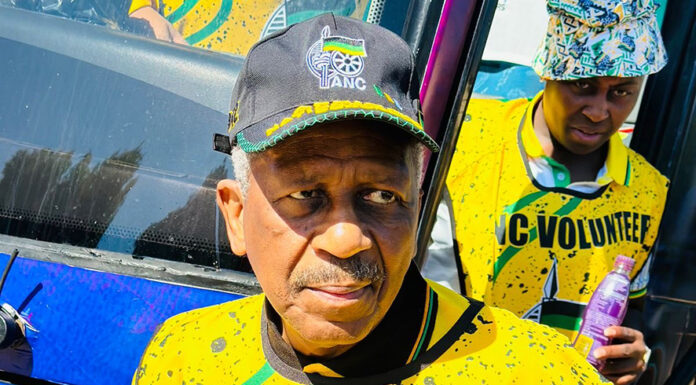Senior South African business and political figure Mathews Phosa has issued a stark warning that the nation is “sitting on a powder keg” of social discontent, proposing a radical shift to the direct election of the president by popular vote as a necessary remedy for systemic failure.
The call from Phosa, a former Mpumalanga premier and ANC heavyweight, underscores a deepening crisis of confidence in the country’s political structures.
It reflects a growing sentiment among business leaders and civil society that the current model of governance, where a president is chosen by the ruling party’s internal caucus, is fundamentally broken.
Plea for accountable leadership
Speaking at a Public Sector Leaders’ Summit near Johannesburg, Phosa delivered a speech that was less a gentle critique and more a sweeping indictment of the political class.
He articulated a simple, if desperate, plea from citizens for basic services and accountable leadership, framing the direct election of the head of state as a logical step to rebuild trust.
“People from all walks of life feel betrayed by the democracy that their elders fought and died for,” Phosa told the audience at the Indaba Hotel, drawing on themes from his recent book, Witness to Power. “I beg you to find your inner voices and take our democracy back.”
The proposal directly addresses the core political issues facing South Africa. Under the current system, voters elect a parliament, which then elects the president.
This system often insulates the head of state from direct public accountability, cementing power within party politics.
Phosa’s argument, simplified, is that if the people could choose their president directly, that leader would be compelled to answer to them, not just to party bosses.
Current system is not working
His speech depicted a nation reeling from a lack of delivery. He described a landscape where the state fails to fix potholes, leaving private companies or self-taught traffic directors to repair them.
He lamented a government that confuses “media spin with progress” and leaders who have forgotten the “empty stomachs” of those who elected them.
“We warn that 2029 will witness further winds of change of a magnitude that will sweep away those who arrogantly ignore the dramatic plight of the hungry, homeless and angry,” Phosa said, positioning the 2026 local elections and the 2029 national poll as potential referendums on the status quo.
The logic presented was straightforward: the system is not working; therefore, the system must be changed.
A popularly elected president, in this worldview, becomes a direct conduit for the public will, bypassing a political class accused of being self-serving and corrupt.
“We need leaders that are bankable, not morally bankrupt,” Phosa stated, listing a series of demands that included longer jail sentences for corrupt officials, a downsized national cabinet, and the slashing of bureaucracy.
Promise of 1994 squandered
The speech also served as a stark message to the business community, urging them to translate economic frustration into political action.
Phosa’s dire imagery of a “powder keg” of instability is a clear signal that social unrest poses a direct threat to economic recovery and investment.
For many in the audience of public and private sector leaders, the appeal was unambiguous. A growing number of people perceive the promise of 1994 as squandered.
The solution, as proposed by figures like Phosa, is to tear up the political playbook and forge a new, more direct compact between the governed and their leader.
Whether this specific constitutional change gains traction remains to be seen. But its proposal from a figure of Phosa’s stature signals that the debate over how South Africa is governed, and by whom, is entering a new and more confrontational phase.
As Phosa concluded: “It is all in your hands.”



